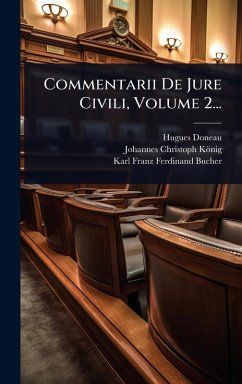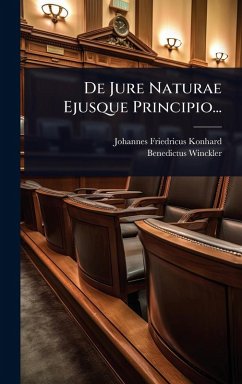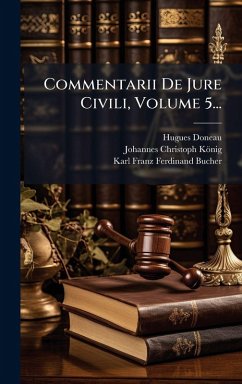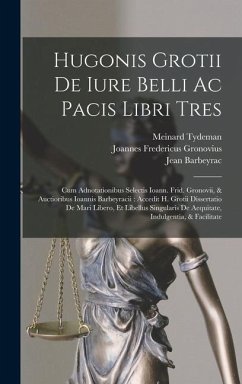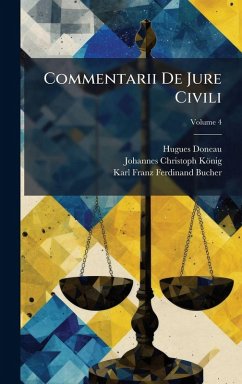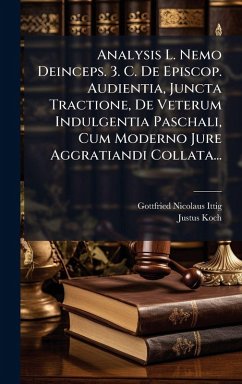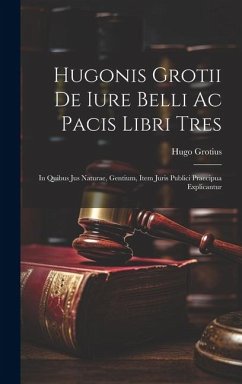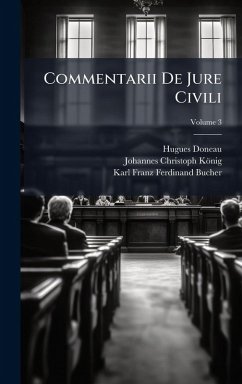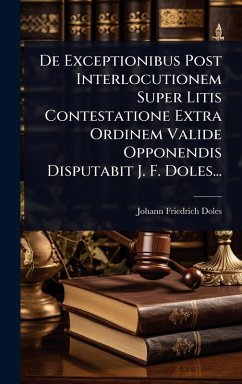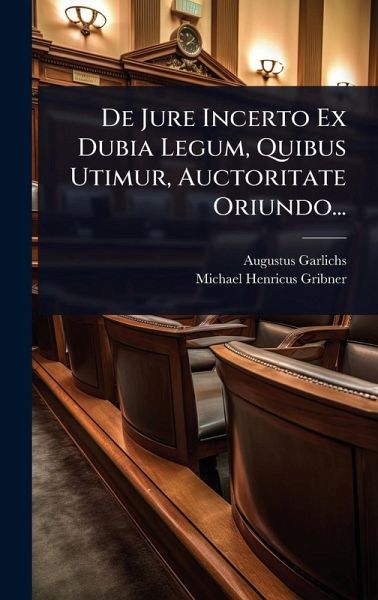
De Jure Incerto Ex Dubia Legum, Quibus Utimur, Auctoritate Oriundo...
Versandkostenfrei!
Versandfertig in über 4 Wochen
25,99 €
inkl. MwSt.
Weitere Ausgaben:

PAYBACK Punkte
13 °P sammeln!
De Jure Incerto Ex Dubia Legum, Quibus Utimur, Auctoritate Oriundo... is a scholarly work in Latin by Augustus Garlichs and Michael Henricus Gribner, exploring uncertain aspects of law derived from questionable authority. This treatise delves into the intricacies of legal principles, likely within the context of Roman or European legal history. The book is of interest to legal scholars, historians of law, and those proficient in Latin seeking insights into historical jurisprudence and the evolution of legal thought. This work has been selected by scholars as being culturally important, and is ...
De Jure Incerto Ex Dubia Legum, Quibus Utimur, Auctoritate Oriundo... is a scholarly work in Latin by Augustus Garlichs and Michael Henricus Gribner, exploring uncertain aspects of law derived from questionable authority. This treatise delves into the intricacies of legal principles, likely within the context of Roman or European legal history. The book is of interest to legal scholars, historians of law, and those proficient in Latin seeking insights into historical jurisprudence and the evolution of legal thought. This work has been selected by scholars as being culturally important, and is part of the knowledge base of civilization as we know it. This work was reproduced from the original artifact, and remains as true to the original work as possible. Therefore, you will see the original copyright references, library stamps (as most of these works have been housed in our most important libraries around the world), and other notations in the work. This work is in the public domain in the United States of America, and possibly other nations. Within the United States, you may freely copy and distribute this work, as no entity (individual or corporate) has a copyright on the body of the work. As a reproduction of a historical artifact, this work may contain missing or blurred pages, poor pictures, errant marks, etc. Scholars believe, and we concur, that this work is important enough to be preserved, reproduced, and made generally available to the public. We appreciate your support of the preservation process, and thank you for being an important part of keeping this knowledge alive and relevant.




